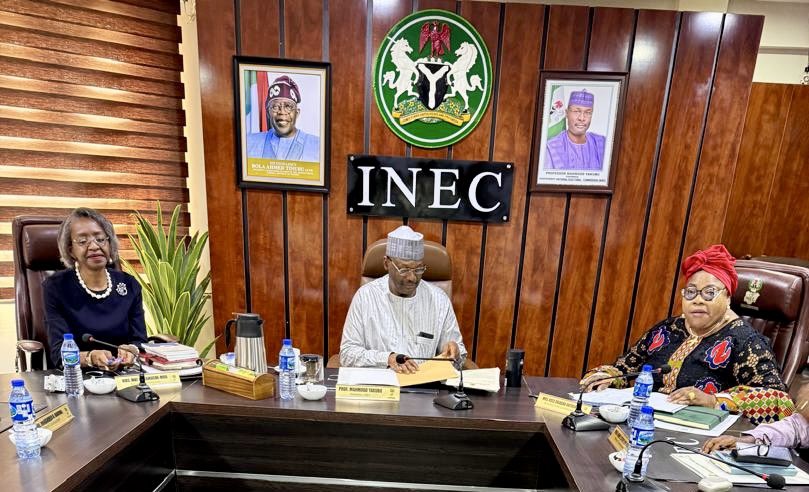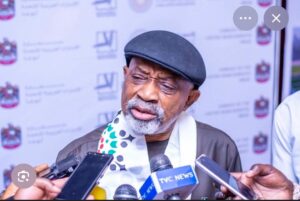
INEC unveils digital tools to boost election transparency, efficiency
The Independent National Electoral Commission (INEC) has introduced innovative digital tools designed to enhance the efficiency and transparency of upcoming elections in Nigeria.
During a one-day retreat held in Lagos, the Commission’s Chairman, Prof. Mahmood Yakubu, highlighted the importance of leveraging technology to improve the electoral process.
He emphasized that these advancements are a crucial step toward modernizing election management systems in the country.
He said: “These mobile applications represent our commitment to leveraging technology for transparent and efficient elections. They will transform everything from voter registration to results collation.”
The digital applications unveiled include the Collation & Returning Officers Management System (CROMS) designed to streamline the management of collation and returning officers and the Election Results Management System (ERMS) designed to enhance the process of managing and transmitting election results.
The tools also include the Virtual Election Training System (VETS) which will be used for the virtual training of election personnel, the Political Party Financial Reporting System (PPFRS) designed for managing and monitoring the financial reporting of political parties; the Election Monitoring & Support Center (EMSC), dashboard for real-time election monitoring and support and the Electoral Facility Locator (EFLOC) which is an application designed to help locate electoral facilities.
Yakubu said the introduction of these digital tools signals INEC’s continued efforts to harness technology to improve the credibility and efficiency of Nigeria’s electoral processes.
Rudolf Elbling, Team Leader for DAI, commended the Commission’s dedication to technological advancement in electoral administration.
He said the development of the election management systems began in September 2022 following detailed consultations with INEC’s technical team, senior officials and the Chairman.
He explained that eight applications were developed over two and a half years, tailored towards supporting critical INEC functions such as staff recruitment, campaign finance tracking, and election operations.
He explained that while six of the applications are for internal use while PFRAS and EFLOC offer public-facing features.
He said “PFRAS enables political parties to report finances, while FLOC can deliver essential voter information such as polling unit locations and voter registration details. INEC, as the sole owner of the systems, retains full control over modifications and the extent of public access”.
Elblings explained that some of the applications, including the Virtual Election Training System (VETS) and the Election Management Support Centre (EMSC), have already been successfully piloted in Ondo and Edo States.
He announced future plans to develop another platform to integrate all applications into a unified data system, and to introduce 12 VETS training modules.
He praised the leadership of Prof. Mohammed Kuna and Prof. Ibeanu for driving the project to success, and expressed gratitude to the European Union for its support through the EUSDGN initiative.
INEC’s ICT Director, Lawrence Bayode said the concepts and ideas behind the applications were not outsourced but wholly conceived and designed by the Commission’s technical and management staff which is a significant milestone in INEC’s drive for digital independence.
Bayode explained that the next critical step is to build the capacity of inter-departmental staff to ensure seamless adoption and functionality of the new systems.
Court convicts blogger for cyberbullying MFM pastor Olukoya
Faithia Balogun not my lover, says Tope Adebayo
North will determine winner of presidential 2027 election – ACF
Share your story or advertise with us: Whatsapp: +2348033202396 Email: sentinelnewsng@gmail.com








